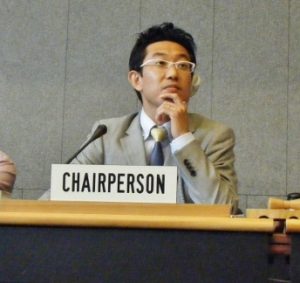再生可能エネルギーは貿易戦争の新たな具か
菊川 人吾
国際環境経済研究所主席研究員
日本やEUが固定価格買取制度の補助金性をめぐってどのように国際紛争で勝ち取ることを念頭に置いて戦っているのか、パネル報告書が明らかでない現在、その評価を行うことは難しい。しかし、固定価格買取価格制度をめぐるWTO紛争はこの日EU対カナダが初めてのケースとなるはずである。日本の再生可能エネルギー政策において、関連技術や関連製品の輸出競争力向上を目指すのか、国内の再生可能エネルギー供給充実を目指すのか、それらの政策は長期的視点が不可欠なだけに、当該初のケースの結果がその後「判例」として影響を及ぼすことを想定すれば、その戦い方も今後の長期的エネルギー政策も見据えたものとすることが必要であろう。さきに引用したギリシャについては、冒頭取り上げた中国が訴えているEUメンバー国の一つとしてわざわざ名指しされており(注7)、各国とも情勢を見極めながら次の一手を進めつつある。日本の政策当局は一見して内国民待遇違反と認定されるような国際ルール違反措置を行うことはないだろうが、「補助金」という産業政策に普遍的なツールに関しては今般のパネル判例が今後の政策立案(どのように国際ルール整合的に設計するか検討せざるを得ない)に多少なりとも影響を及ぼすのではないかと考えられる。
WTOが10月31日にいわゆる保護主義レポート(注8)を発表したが、世界経済鈍化の下でG20諸国における保護主義的貿易措置は引き続き増加しており、その措置カテゴリー(貿易上の技術制限)において保護主義的措置の目的(いわば言い訳)として掲げられているものとして、まず健康安全(human health and safety)、そしてその次に環境保護というものが指摘されている。昔はいわゆる「自然保護」と対立する概念としての貿易(ゆえにGATTにもわざわざ20条に一般例外規定を設け、シンプルに誤解を恐れずに言えば、人等の生命や健康の保護や有限天然資源保護といった場合には適用除外されうるという考え方を有している:注9)という位置づけだったであろう。しかし、そのような時代は過ぎ、雇用/産業競争力/エネルギーといった複雑な要素の一つとして「環境」というものが捉えられた上で更なる判例や新たなルール作りが進んでいくこととなろう。国際貿易紛争の戦い方もそのような複層的な戦略が必要になっていくのではないかと考えられる。
※本文中、意見にかかる部分は筆者の個人的見解であり、所属する組織等を代表するものではない。
(注7):WTO報道資料から。下線は筆者。(http://www.wto.org/english/news_e/news12_e/ds452rfc_05nov12_e.htm)
China notified the WTO Secretariat on 5 November 2012 of a request for consultations with the European Union and certain member states. It alleges that certain measures affecting the renewable energy generation sector relating to the feed-in tariff programmes of EU member states, including but not limited to Italy and Greece, include domestic content restrictions and are inconsistent with the GATT 1994, the Agreement on Subsidies and Countervailing Measures and the Agreement on Trade-Related Investment Measures.
(注8):
—http://www.wto.org/english/news_e/news12_e/igo_31oct12_e.htm
(注9):GATT条文抜粋
Article XX: General Exceptions
Subject to the requirement that such measures are not applied in a manner which would constitute a means of arbitrary or unjustifiable discrimination between countries where the same conditions prevail, or a disguised restriction on international trade, nothing in this Agreement shall be construed to prevent the adoption or enforcement by any contracting party of measures:
(b) necessary to protect human, animal or plant life or health;
(g) relating to the conservation of exhaustible
natural resources if such measures are made effective in conjunction with restrictions on domestic production or consumption;
(その他の項は略。)


















